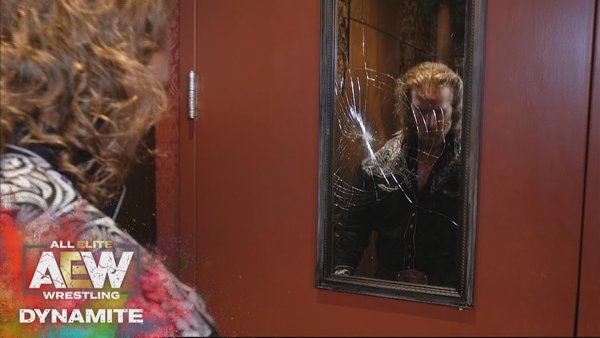How Hangman Page Will Change Everything About Pro Wrestling

Hangman Page is ruggedly handsome, irreverently witty, and exceptionally talented. He has all of his thick, flowing hair. He shouldn't walk the streets with any fear; he has a forearm that could take anybody's head clean off. But he is plagued by mental health issues. His is a very brave story to tell, and it's even powerful that he is the one telling it. The message is inconvenient, scary, but crucial: anxiety and depression are indiscriminate. His whiskey doubles as a totem of masculinity and insecurity. The work is rooted in the classic form, but he is taking it to a place nobody else has - with the ironic exception of Omega.
A former schoolteacher, the keenly intelligent Page flecks this arc with touching symbolism and so much rewarding subtext.
At Full Gear, he switched trunks for tights in a visual plea to the partner he knew was going to desert him. He clutched tightly to Omega's legs, mirroring his betrayal of Nick Jackson, to prevent him from taking a suplex. Hangman Page tells better stories with his hands than most do with a microphone in hand, whether he's nursing a drink or desperately holding onto a lost connection. The level of detail Page puts into his work, even in his flippant lower thirds, is almost unparalleled.
Page is playing a real and vulnerable man in a cartoon world of badasses, and he trusts you to get it, to stay with him always, even when he's stuck in place, not knowing which direction to take. The discourse surrounding babyfaces and heels is tedious, mostly. The "tweener" is usually just poorly booked. The heel and face roles can and should be situational; if it's good enough for Hiroshi Tanahashi, really, it should be good enough for everybody. But it's difficult to think of a deeper and more well-drawn character than the Hangman.
One day, the evolution of professional wrestling narrative will be traced back to this very arc.